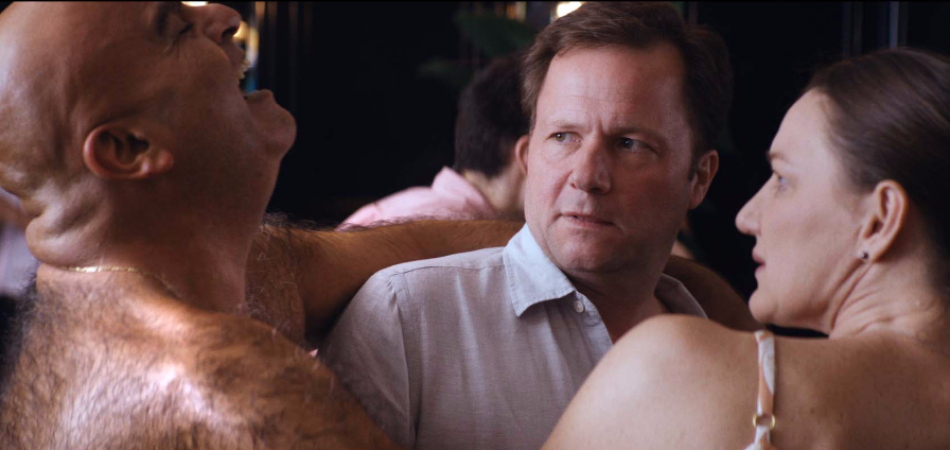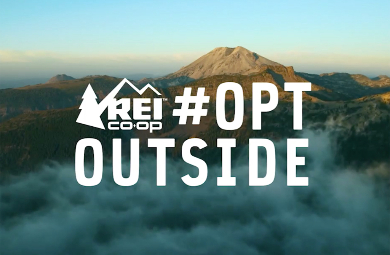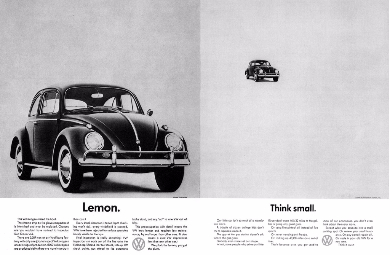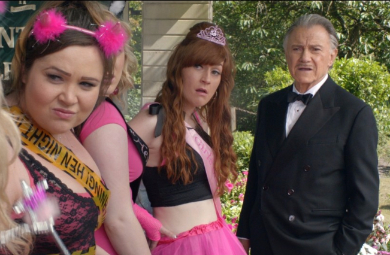
Dr. Martens champions sustainable fashion
Genix Nappa, a new material made of leather offcuts, aims to reduce waste


The marketing world is obsessed with trends, desperate to ensure that its brands and their activity align with, rather than struggle against, the forces of culture. It pays ‘trend spotters’ through the nose, gets seduced by any number of conferences on trends and even, on occasion, reads articles like this.
And yet in many cases real commercial advantage lies, not in following the herd, but in taking a stand against the dominant cultural movements of the moment. By understanding the trends that others regard as gospel and building a brand’s activity in direct contradiction of these, the opportunity is to create a potent new approach to a brand’s marketing. This is the power of the counter trend.
Every trend has a counter trend, something emerging from the shadows of obscurity into the mainstream that with some encouragement may become as powerful and ultimately replace the cultural force it challenges. Indeed in the world of politics, we have recently seen the success of those that have sought to stand against previously dominant cultural ideas like globalisation and plurality.
By seeing what others are doing and doing precisely the opposite, brands and especially challenger brands, can carve out a far more distinctive space to operate. This space is not only more easily ownable but also promises a far greater return on investment. By turning the fame and spend behind the dominant trend against itself you not only benefit from your own budget but that of everyone else.
Let the competition spend all that cash on trend spotting and following the herd into mushy mediocrity and instead back the counter trend. It will set you apart, co-opt their budget and make for far more interesting and ultimately effective activity. Hell, it might even establish a new trend.

Home Away have been enthusiastic adopters of the counter trend. For the past two years they have used the dominant cultural idea of the sharing economy against itself to huge effect, allowing them to take on both Airbnb and hotels with one surgically applied thought.
Airbnb’s explosive growth over the past 5 years had left HomeAway trailing across many measures, not least brand fame, brand size and brand spend. Indeed Airbnb’s spend is 19 times larger than that of HomeAway.
This hadn’t been a significant issue in the early days of HomeAway, since growth had been driven through acquisition of other holiday rental companies. But as the market matures, access to the best inventory and the most enthusiastic renters was going to be far more dependent on the salience of the brand.
These are classic conditions for a counter trend to be successful in.
The answer lay simply in addressing and rejecting the idea of sharing. The sharing economy has been a dominant cultural idea for over a decade, created by technology that facilitated social and physical sharing and an increasing desire to share given that humans are innately social animals.
And the poster child for the sharing economy was Airbnb. Emerging from the culture of couch surfing, it was not only a platform to ensure a successful economic transaction between rental owner and renter but also hard wired into the potent ideas of cultural openness and immersion. And of course this approach has been phenomenally successful for Airbnb. Until now.
Because HomeAway decided to take a stand against sharing. Whatever value it may create in other parts of your life it’s not what you want on holiday. Sharing space, sharing facilities, sharing time and sharing activities all mitigate against having the holiday that you really want, away from it all and to an extent away from everyone else. After all, it’s your holiday.
When it comes to holidays, HomeAway stands resolutely against the sharing culture that dominates our age. Whether it’s sharing a home with a host on Airbnb or sharing the pool with someone else’s kids in a hotel. This belief is lent rational support because HomeAway only ever rents whole homes to people and never just rooms like its principal competitors.
And this counter cultural idea has enjoyed great success. While brand consideration for HomeAway is in double digit growth across every market, in the US it reached the same level as Airbnb last spring. The key metric of branded traffic to the site is also in double digit growth in every market, especially in the UK where it is up nearly 50% year on year. And the success of the HomeAway brand and business success was crystallised last year when it was acquired for $3.9bn by Expedia.
Agency: Saatchi & Saatchi , London


The REI #OptOutside campaign is one of the best known examples in recent years of a brand adopting a counter trend approach. In 2015 REI, the American outdoor clothing company, closed its doors to the public on the biggest shopping day of the year – Black Friday. When all other retailers were plying prospective customers with discounts, REI encouraged both their staff and customers “to do what they love most and be outside”.
Agency: Venables Bell & Partners, San Francisco

In America in the 60’s when the trend for ‘bigger is better’ in automobiles was in full swing, Volkswagen faced the unappealing task of launching a compact car – and worse, a foreign compact car - the VW Beetle. The now infamous ‘think small’ print campaign eschewed the advertising trend for heroing the product (the picture of the car was tiny) and, to quote Advertising Age, “touted the car as the antidote to conspicuous consumption”.
Agency: DDB, New York

Insurance has turned en masse to the fashionable cultural trend of empathy to curry favour with consumers. They use it to imply that insurance brands understand what its like when the shit hits the fan in your life and something bad happens. Direct Line has seen enormous success in adopting the counter trend of effective action over empathy. Through the persona of Mr Wolf, Direct Line skips the pleasantries and simply fixes the problem.
Agency: Saatchi & Saatchi , London

Richard has the best job in advertising, solving big puzzle problems for Saatchi & Saatchi’s clients. He also delivers the agency’s thought leadership programme with specialisms in brand trust, affluence and mums. In addition Richard writes one of the UK’s most influential advertising blogs, adliterate.com and is co-founder of the online London lifestyle store Bleak House.
Looks like you need to create a Creativebrief account to perform this action.
Create account Sign inLooks like you need to create a Creativebrief account to perform this action.
Create account Sign in